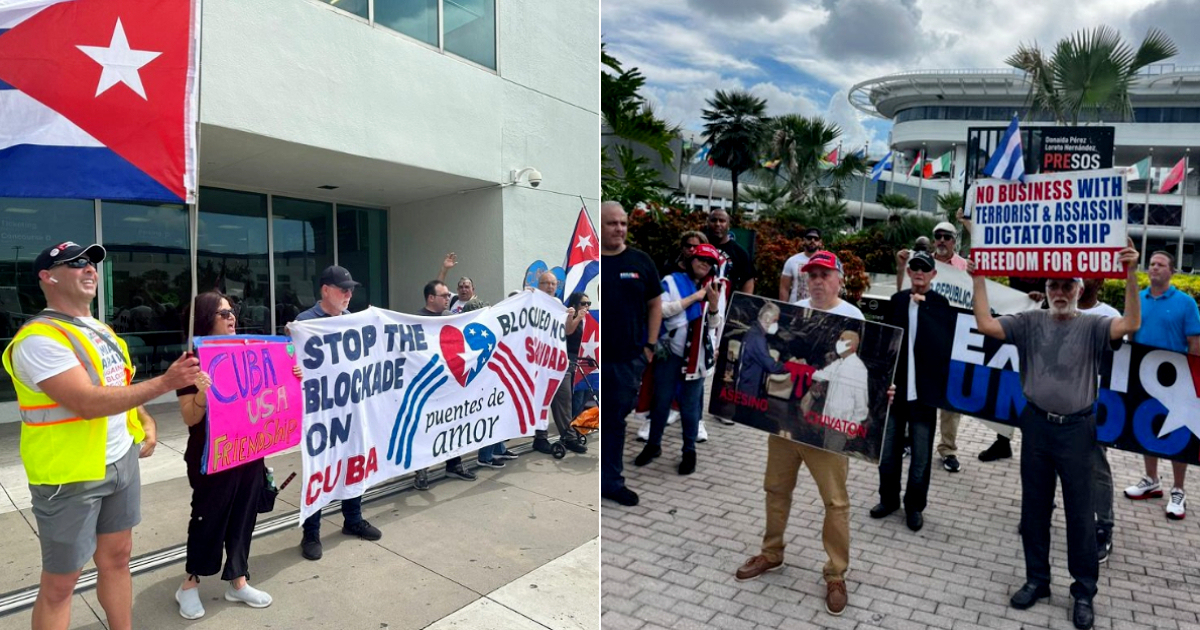
Miami International Airport became the setting for two opposing demonstrations that took place this Sunday to advocate for their respective viewpoints on the situation in Cuba.
Supporters of the Cuban regime, led by the group Puentes de Amor, and opposing Cuban exiles, gathered in Exilio Unido Ya (EUY), met in the same place, creating a direct confrontation between both factions.
From early hours, members of Puentes de Amor, led by activist Carlos Lazo, gathered at the Plaza de las Banderas of the airport. According to the official Cuban media Prensa Latina, the demonstrators waved Cuban flags and unfolded a banner with the message "Lift the blockade," visible to all entering the busy airport train station.
On its Facebook page, Lazo noted that the event organizers had informed the authorities at Miami airport, the police, and the FBI about possible threats and provocative actions by opposing groups.
Prensa Latina also highlighted the participation of Max Lesnik, a noted admirer of the dictator Fidel Castro, who expressed that the "patriotic migrants" were once again present to demand an end to the economic blockade imposed by the United States on Cuba. According to Lazo, this caravan is part of a tradition started in 2020, where activists gather at the end of each month to protest against the embargo.
At the same time, a group of Cuban exiles protested in the same place to denounce the repression of the Cuban regime and demand the release of political prisoners.
Marcel Valdés, one of the leaders of Exilio Unido Ya (EUY), commented that, after a long time, they finally obtained permission to demonstrate at the airport. Valdés emphasized that the action was aimed at dismantling what they consider "the circus of the accomplices of a murderous dictatorship."
The EUY activists, led by Ramiro Collazo and Joel Riverón, have had previous confrontations with supporters of the regime. Last April, during a May Day event in Homestead, Collazo and other EUY members confronted Carlos Manuel, known as Indio Taíno, for his support of the Castro regime.
In addition, in May, members of EUY intervened when pro-Palestine protesters placed a scarf on a bust of José Martí in Coral Gables, an act they deemed a desecration.
The duality of these manifestations at Miami Airport highlights, on one hand, the penetration of the Cuban State Security into the neighboring country, as well as the actions they carry out alongside accomplices and supporters; and on the other hand, the growing rejection that these actions generate among Cuban exiles who, for the most part, insist that the true struggle is for democracy and the freedom of political prisoners on the island.
What do you think?
COMMENTFiled under: